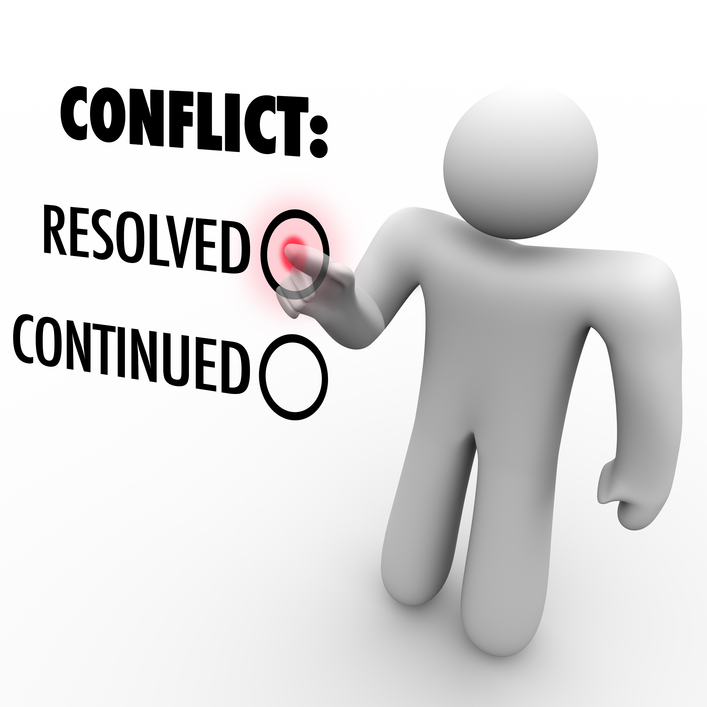4 Questions to Ask when you Face Conflict
by
Everybody
faces conflict. It’s nothing new. From the cosmic conflict between
Lucifer and God before creation to the conflicts in the early church to
the conflicts Jesus often faced with the Jewish legalists, it’s a given
in life. Conflict is not sin in itself, but sin can cause it and we can
sin in how we respond to it. Wise leaders, however, know how to manage
conflict when it comes. 4 good questions arise from Acts 15 in the
account of the early church’s conflict with those who believed that
non-Jews (Gentiles) could become Christians, but only after they first
became Jews.

4 good questions to ask when you face conflict:
If the early church had not resolved the conflict with the Judaizers, the results could have been disastrous. In a similar way, when conflict arises in our churches, unless we wisely resolve them, we can lose momentum, people, and resources.Question 1: The conviction question. Is the conflict you are facing a matter of deep conviction that you can’t resolve through personal prayer and processing?
In the early church’s case, the issue of salvation (was it Jesus plus works or Jesus plus nothing) was a significant issue. It could not be overlooked. Paul and Barnabas had to deal with it.Many issues are simply issues of personal preference, hurt feelings, or simple misunderstandings that we can pray through and move on. We don’t need to confront every person over every issue. However, some issues are too significant to overlook.
I suggest these five thresholds that can help you determine if you need to take it further than prayer and personal processing.
- The issue is seriously dishonoring Christ. In some sense God’s reputation is being dishonored or damaged. In the Judaizers case it was well within this threshold.
- This issue is damaging your relationship with that person. Were you not to try to resolve the issue, it could seriously hurt and undermine your relationship with that person.
- The issue is hurting others involved.
- The issue is causing hurt to the offender.
- You just can’t shake it through prayer.
Question 2: The counsel question. Do I need a third party to help?
In Matthew 18.15-18, Jesus says to first go to the person one-on-one if you have a conflict with someone. Usually that’s the proper procedure. But sometimes I believe it’s appropriate to bring in a wise third party even before you do that.Paul and Barnabas felt it necessary to go to Jerusalem to include the elders and apostles there for them to weigh in on this issue. They needed wisdom.
Sometimes we do need to include the counsel of others even before we escalate a conflict to a one-on-one conversation. What might justify doing that?
- You need wisdom from an objective third party to help you discern it you really need to confront the other party.
- You need wisdom to know how to confront the other party.
- You need to be encouraged to confront the other party and a wise person can give you the confidence to take that step.
Question 3: The compromise question. Do I need to defer in some way in this conflict?
Often the issue is not so much about what the other person did to you, but about your role in the conflict. Sometimes we should defer, yield, or let go of the issue. Compromise never means watering down truth or your convictions. Neither does not mean you are weak.In the case facing the early church, the Judaizers had to give up their wrong notion that becoming a follower of Jesus required that a person had to become a Jew first. And the Gentile believers had to yield to some of their Jewish Christian brothers on some dietary issues that could have a caused a rift in their relationships with them.
A sign of a mature follower of Jesus is loving compromise.
Question 4: The clarity issue. Have I clarified the issue?
Often conflicts get so muddied that both parties loose sight of the real issue. The conflict reflects something deeper or even something not related to the ‘presenting’ issue.The early church clearly clarified their issue by appealing to history, to the facts, and to God’s Word. They dialogued, listened to each other, and even recorded in a letter what they had resolved.
When they clarified the issue they presented a united front, avoided a split, and encouraged each other. When we truly resolve conflict in the church, everybody feels a sense of relief, just like the early church did.
Some when you deal with conflict, make sure you clarify the real issue.
These four questions based on how the early church resolved a conflict can guide leaders toward successful conflict resolution in their churches.
What else has helped you resolve conflict in your church?
Related posts:
No comments:
Post a Comment